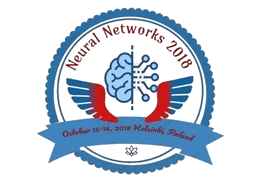
Andrea Burgio
ESIEE School of Engineering, France
Title: Markov meets Schrödinger: rebranding uncertainty and the fear factor
Biography
Biography: Andrea Burgio
Abstract
Uncertainty has become a commodity and a must-have of any political agenda and corporate strategy. Nothing new since it has always been blamed or praised for anything from climate disasters to commodity prices volatility and from social unrest to industrial systems failures. Academics, policy makers and corporate executives have being rocking their brains for millennia to manage uncertainty and limit risk factors, while selling remedies bundled to the appropriate dose of fear. Fuzzy multiphase Markov chains and other stochastic models had their ups and downs and even made it more or less subtly into everyday must-haves like search engines and social augmentation tools; fortunes and misfortunes were built on modeling and engineering financial interactions and many non-PhD-bearing commoners now can even make a living out of sharing their empirical understanding of the world’s complexity. Have we collectively reached the limits of our analog representation of reality? Are we emotionally delaying the quantum leap? These and other less-compelling issues are the everyday unconscious lot of entrepreneurs and political actors and shape most of today’s human interactions, from multilateral trade agreements to the raise and fall of leaders and nations, in an astounding swirl of unprecedented interconnectedness. Science, especially the newly rebranded Data one, can contribute both to the exponential spread of the fear factors as to the empowerment of all the members of our multi-meshed societies, leading potentially to both ends of the cat-in-the-box situation. What we make of it all is a choice that belongs to no-one in particular and everyone at the same time. Dealing with and in Uncertainty can be a rewarding experience while bearing a fearful and anxious weight that keeps us alert, humble and curious. While tools and models do help in decision making, collective and individual intelligence shall remain at both ends of the process.

